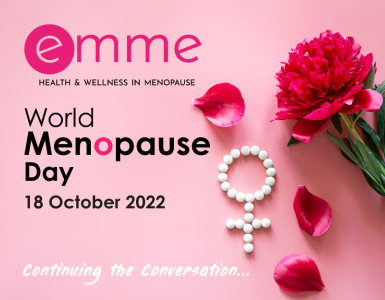The changing of the clocks can have a variety of effects on people. Shorter days and darker nights may make some people feel sluggish and the decrease in light can trigger more intense sensations of low mood, fatigue, and worry in others. Sue Bedford, a leading nutritionist, answered our questions on Seasonal Affective Disorder (SAD) and gave us some great dietary recommendations for beating the winter blues. Here’s what she had to say:
Seasonal Affective Disorder (SAD) is thought to affect many in the northern hemisphere between the months of October and April
According to research, the prevalence of Seasonal Affective Disorder ranges from 1 to 10% of the population, with the frequency being higher among people who reside in northern latitudes. This seasonal form of depression can range from a simple case of the ‘winter blues’ to severe anxiety and depression symptoms. Light is vital in maintaining the balance of hormones and neurotransmitters in the brain that affect our mental health and sleep quality, and a decrease in light appears to be the main contributory factor to SAD. To be diagnosed with SAD, an individual must meet the criterion of depression for at least two years that coincides with a specific time of year. It is thought that other contributing factors could be low levels of serotonin, stress, disrupted body clock, or biological predisposition. Women seem to suffer more as individuals from SAD as well as individuals who have a family history of depression.
Symptoms of SAD include:
- Low energy
- Overeating
- Weight gain
- Craving sweet and starchy foods
- Social withdrawal
- Feeling sleepy/sleeping too much
Nutrition and SAD
It is important to optimise your nutrition to help support and nourish your body and brain. Whether you have a mild case of the winter blues or more severe forms of seasonal depression. Here are a few areas of nutrition that may help to boost mood.
Vitamin D
Vitamin D is frequently referred to as the ‘Sunshine Vitamin’ as sunlight is necessary for the synthesis of this Vitamin (which is produced underneath the skin following exposure to sunlight). Vitamin D occurs in two forms: vitamin D2, which is present in a small number of foods, and vitamin D3, which is formed in the skin when exposed to sunlight. Both D2 and D3 are converted into a form that the body can use in the liver and the kidneys. People need varying degrees of vitamin D depending on where they live and their diets.
In the UK (and people living in the northern hemisphere) we don’t get enough of the kind of sunlight that causes our bodies to manufacture vitamin D under the skin. Only one kind of solar radiation does this: UVB sunlight. Vitamin D is synthesised only when we’re exposed to UVB rays – and unless UVB rays are present it doesn’t matter how warm it is, or in fact how brightly the sun is shining: your skin cannot produce vitamin D. Therefore, individuals who live in darker or colder environments are more susceptible to lower vitamin D levels, as are those with darker skin, those who rarely go outside and those who wear clothing that covers most of their skin. In the UK we are exposed to UVB in reality from April to October.
To make vitamin D more available to us, it is added to dairy products, juices, and cereals that are then said to be ‘fortified with vitamin D’. But most vitamin D – 80% to 90% of what the body gets – is obtained through exposure to sunlight. Here are some food sources of vitamin D:
- Egg yolk
- Red meat
- Oil fish such as Sardines, Mackerel, Salmon and Herring
- Tuna
- Liver It is recommended that during the months October to April that adults may wish to take 10 micrograms of vitamin D per day in supplement form when light levels are low (many take it all year round depending on their levels). Low vitamin D is linked to low mood. It is a good idea to understand your vitamin D status to begin with. Contact your GP or Qualified Nutritional Therapist (Check that they are BANT registered). If you wish to purchase a home testing kit please visit our shop page or follow this link Vitamin D Blood Test | Vitamin D (25-OH) Test from Medichecks.com To purchase a high quality vitamin D supplement please follow this link Vegan Vitamin D3 | Wholefood Supplement (cytoplan.co.uk)
Omega 3 fatty acids
Oily fish, nuts and seeds contain fats that are essential for cognitive function.
Omega 3s help mood, memory and many brain health issues (low levels of omega 3 have been linked to anxiety, depression, and bipolar disorder), but most of us are deficient and as our bodies cannot make omega 3, we need to obtain it from food. Oily fish such as sardines, wild salmon, herring and mackerel are fantastic sources of omega 3 fatty acids and meat, eggs, cheese (from grass fed animals), avocado and nuts and seeds are good sources too.
To purchase a high quality omega 3 supplement please visit our shop page or follow this link Pure Antarctic Krill Oil | Neptune Krill Oil Capsules | Contains Omega-3 (cytoplan.co.uk)
Eat good quality lean protein
Our bodies need essential fats and protein for the formation of neurotransmitters like serotonin to help support mood, so aim to have some protein rich foods at each meal such as eggs, meat, fish, chicken, nuts, seeds, dairy products, pulses, hummus or turkey.
Reduce sugar right down
Although low mood can leave us cravings sugary foods and refined carbohydrate, this is not a good choice for supporting mood as quick release carbohydrates cause our sugar levels to rise sharply and then fall just as quickly often producing a slump in mood. Choose healthier snacks like a handful of seeds and nuts, an oatcake, some homemade guacamole with carrot sticks or some natural yoghurt instead.
Increase serotonin
Serotonin is the body’s feel good neurotransmitter, levels of which can be low in those suffering from SAD. 5-HTP (5-Hydroxytryptophan) is a natural precursor to serotonin, which is formed in the body from the amino acid tryptophan, found in oats, milk, yogurt, cottage cheese, red meat, eggs, fish, poultry, sesame, chickpeas, almonds, sunflower seeds, pumpkin seeds, buckwheat and peanuts.
Reduce caffeine and alcohol intake
There is a reciprocal relationship between alcohol and depression. “When we’re talking about caffeine and about alcohol and their impacts on mental health, the topic that you start focusing on is sleep,” says Alexander Blount, a psychologist and professor emeritus of family medicine at the University of Massachusetts Medical School.
Too much caffeine can increase existing feelings of stress and anxiety. Most people are familiar with the energy boost and jitters that can accompany getting a sudden shot of espresso or an energy drink. The substance increases your body’s alertness and in doing so can make someone already struggling even more anxious and experience issues with quality sleep.
Going heavy on the caffeine can also increase alcohol use, says Blount. Many people will have a drink or two to dull the effects of caffeine to help them go to sleep, he says. While alcohol may help you fall asleep, it often reduces the quality of your sleep, so you aren’t getting the deep rest your brain needs.
“Alcohol increases risk of depression and depression increases risk of alcohol use,” says Blount.
Increase berries
They can help to reduce stress as contain an array of vital vitamins and antioxidants. Stress can increase depression symptoms and tires the body. Raspberries, Blueberries and strawberries may help prevent the release of cortisol, a hormone produced by the adrenal gland.
B Vitamins
Especially B6, B12 and folate (vitamin B9). There is some evidence to suggest that these important B vitamins can help boost mood and relieve anxiety and depression. Good sources of folate can be found in leafy greens, oatmeal, sunflower seeds, oranges, fortified cereals, lentils, black-eyed peas, and soybeans. Low levels of vitamin B12 are associated with depression, and more research is being conducted into this area. Good food sources of vitamin B12 include lean beef crab, wild salmon, eggs, oysters, cottage cheese, natural yoghurt, milk, and fortified cereals.
To purchase a high quality Vitamin B Complex supplement please visit our shop page or follow this link B Complex (High Potency) | B Vitamins | Cytoplan
Eat more Bananas
Bananas contain a good amount of Tryptophan, the precursor to Serotonin – the feel-good brain chemical. Bananas may improve sleep and reduce anxiety — two symptoms of SAD.
Top up on the Turkey!
A small variety of foods contain sources of Tryptophan which is one of the chemicals besides Melatonin that helps to calm and relax the brain. Turkey contains both so is a good food choice during the winter months. It is also packed full of vital vitamins and minerals and is a good source of lean protein.
Boost magnesium
Magnesium is important for balanced mood and energy production, so if you’re feeling down and sluggish then this is one nutrient that you need to include more of in your diet. Found in dark green leafy vegetables, legumes, wholegrain, as well as in nuts and seeds.
To purchase a high quality magnesium supplement please visit our shop page or follow this link Biofood Magnesium | Food State Supplement | Vegan | Cytoplan
And finally…..
Try to exercise outdoors each day
Exercise is a well known natural anti -depressant. Try and do some each day – brisk walking is particularly beneficial.
Supplements and SAD
Vitamin supplements, such as vitamin D for energy and tiredness, and Omega 3 for brain health and mood, are beneficial to some people. If you’re on medication, suffering, or depressed, you should always consult with your GP (and Qualified nutritional therapist or dietician) to be sure they’re right for you.
If you have any questions for our experts, do get in touch here. We are here for you.
















